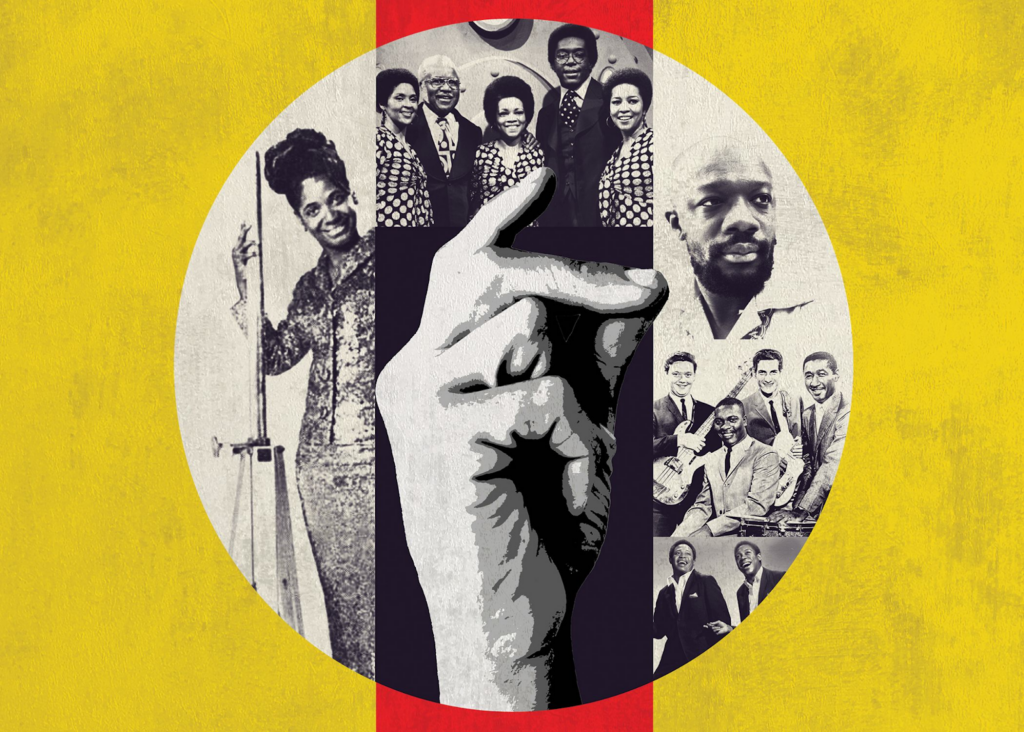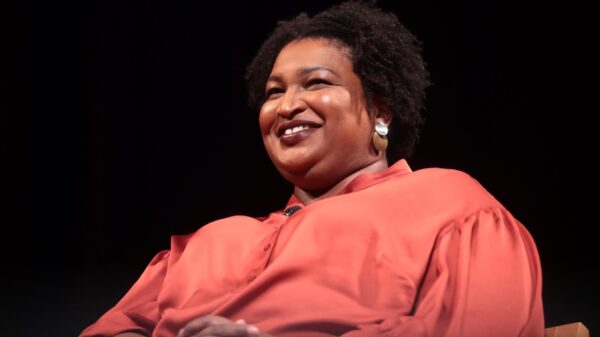
ARLINGTON, VA. — About 15 minutes before the show started at Signature Theater last Wednesday, there were only a few empty seats left at the cabaret—a performance where the audience enjoyed drinks at tables accompanied by a live show.
The crowd chattered as Memphis soul tracks played in the background, with shades of blue and red light reflecting off their faces before the lights went dark. The opening notes of “Green Onion” by Booker T. & the M.G.’s could be heard on the guitar.
Issac “Deacon Izzy” Bell and Kanysha Williams ran onto the stage as the audience applauded.
“We’re celebrating Stax Records tonight,” Bell, a show’s cast member, said before starting the performance.
Howard alumni De’Anté Haggerty-Willis, musical director, and Issac Bell, cast member, star in “I’ll Take You There: Stax Records Co.,” a nearly sold-out cabaret celebrating Stax Records and the Southern soul genre, running from Nov. 12 to Nov. 24.
Stax Records was a Memphis-based label founded in 1957, producing prominent musicians like Otis Redding, Isaac Hayes and Booker T. & the M.G.’s. Through their interracial company mission, musicians under Stax were able to develop a unique sound, combining Black culture with white pop and country.
The cabaret weaves in information about the label and its artists during a 75-minute performance covering the most popular songs of the record company. The show features hit songs like “Try A Little Tenderness” by Otis Redding and “Soul Man” by Issac Hayes and David Porter.
Haggerty-Willis acts as musical director and guitarist of the show, which is an extension of his work while at Howard when he was a jazz studies music major. He graduated in 2013 when the Chadwick A. Boseman College of Fine Arts was a department under the College of Arts and Sciences.
“To come full circle now years later and be in a position where I get to select the music that’s played and the way it’s played, even down to how we’re going to divide the songs between the singers and the band, being able to make those decisions and create a show that not only highlights my brothers and my sisters but keeps the legacy of Stax going,” Haggerty-Willis said.
Both alumni were heavily involved in music during their time at Howard. As members of the Showtime Marching Band and music fraternity Phi Mu Alpha Sinfonia, Bell and Haggerty-Willis threw themselves into their passion wherever they could.
Bell began his career at the university, starting a band his first year that practiced out of the basement of Drew Hall.
“We rolled our instruments over there on my skateboard,” Bell said. “I was rolling on my longboard amps, a drum kit. I’m talking about we went to Fine Arts and Drew Hall probably 10 times, just moving instruments just so we can have that concert.”
Haggerty-Willis and Bell later started a band together called DuPont Brass at Howard. Before their success, they hailed from humble beginnings.
“We weren’t doing shows at Howard. Nobody even gave a damn what we was doing because we was playing classical music at the Metro. That evolved into us playing R&B, soul, funk and now we have an Earth, Wind & Fire, The Roots hybrid type of group. And we’re going on tour,” Bell said.
DuPont Brass has gone on four national tours from Washington, D.C., to Oakland, California in the past two years.
Haggerty-Willis originates from Southeast Washington, D.C., and Bell from North Carolina. Both musicians hail from environments filled with funk, jazz and gospel.
The production features the same style of music the alumni grew up listening to and strive to embody in their current music endeavors.
“I’ll be honest, as a six, seven, eight-year-old hearing the Staple Singers and Isaac Hayes, I didn’t even know their names. I just knew the music was dope. I knew it touched my spirit. Then, as I got older, I connected to this music much more. “I’ll Take You There” [by The Staple Singers] is one of the first little lines I played on guitar,” Bell said.
The past jazz studies major accredited much of his passion to his time with his counterparts at the university.
“Howard definitely fortified us in a different way. The brotherhood that I found within Phi Mu Alpha, being able to be a part of people who were also striving for excellence as well,” Haggerty-Willis said. “And it wasn’t always easy. It wasn’t always comfortable. We had to push each other and watch each other go from being boys who came from whatever background grow into men, but professional responsible men and then add music to that as well.”
Copy edited by Anijah Franklin







